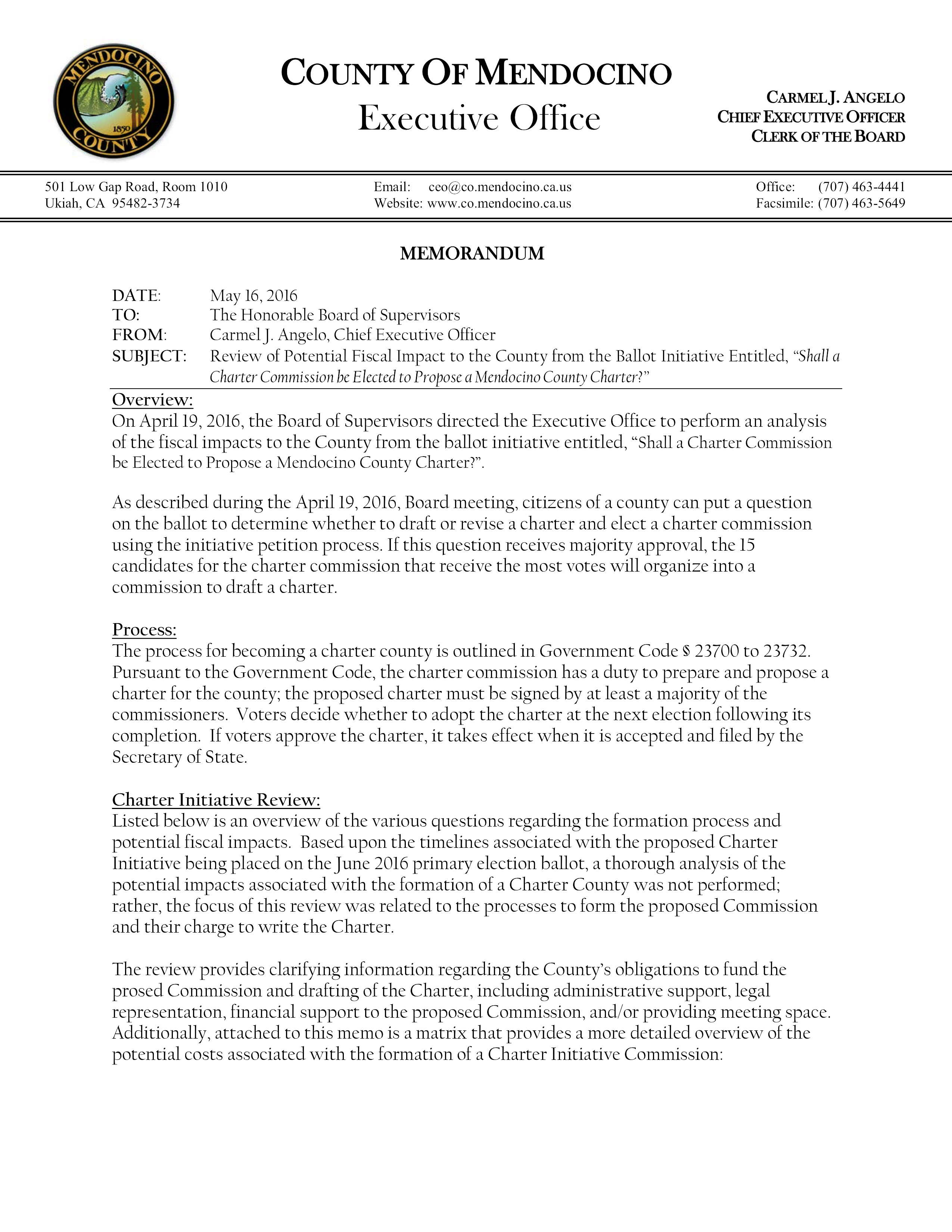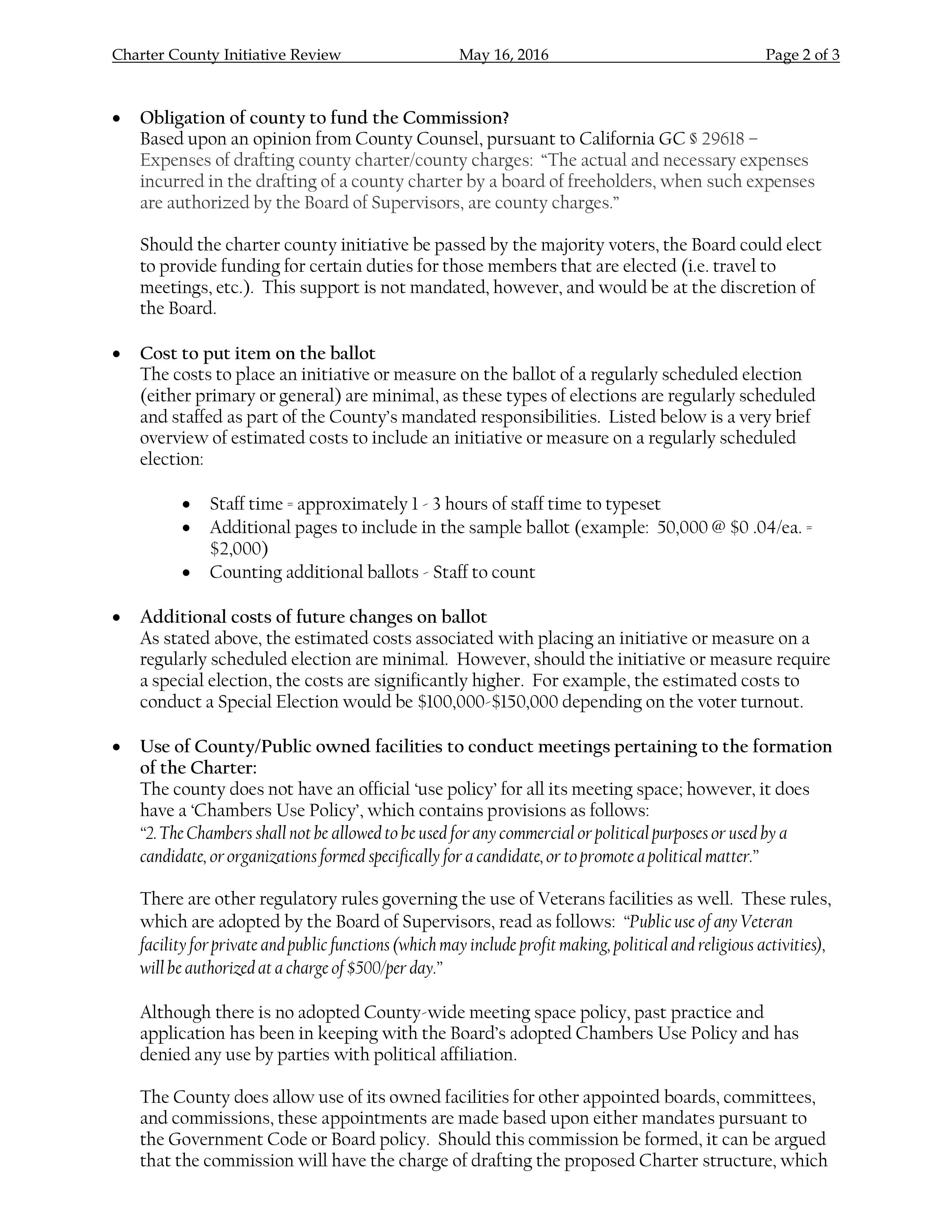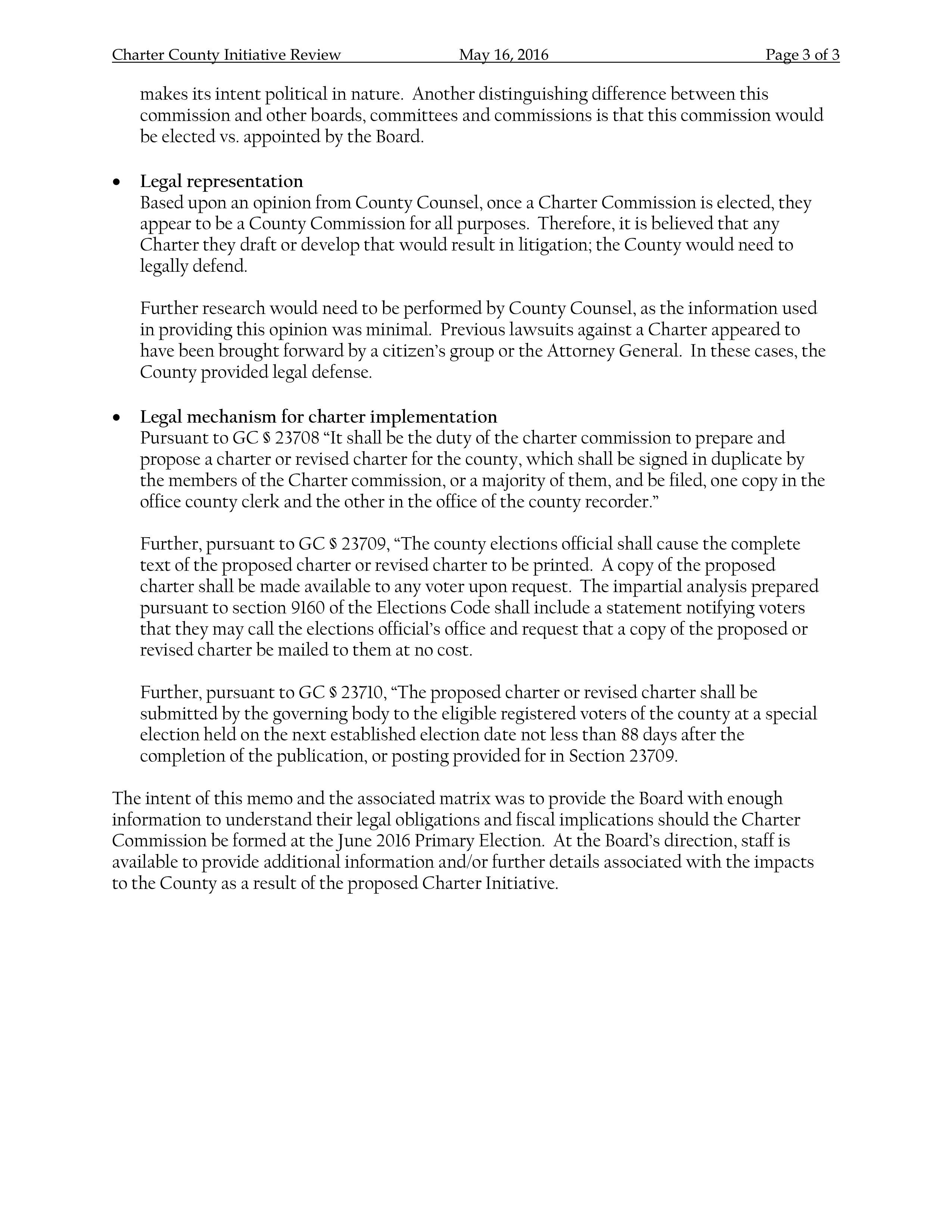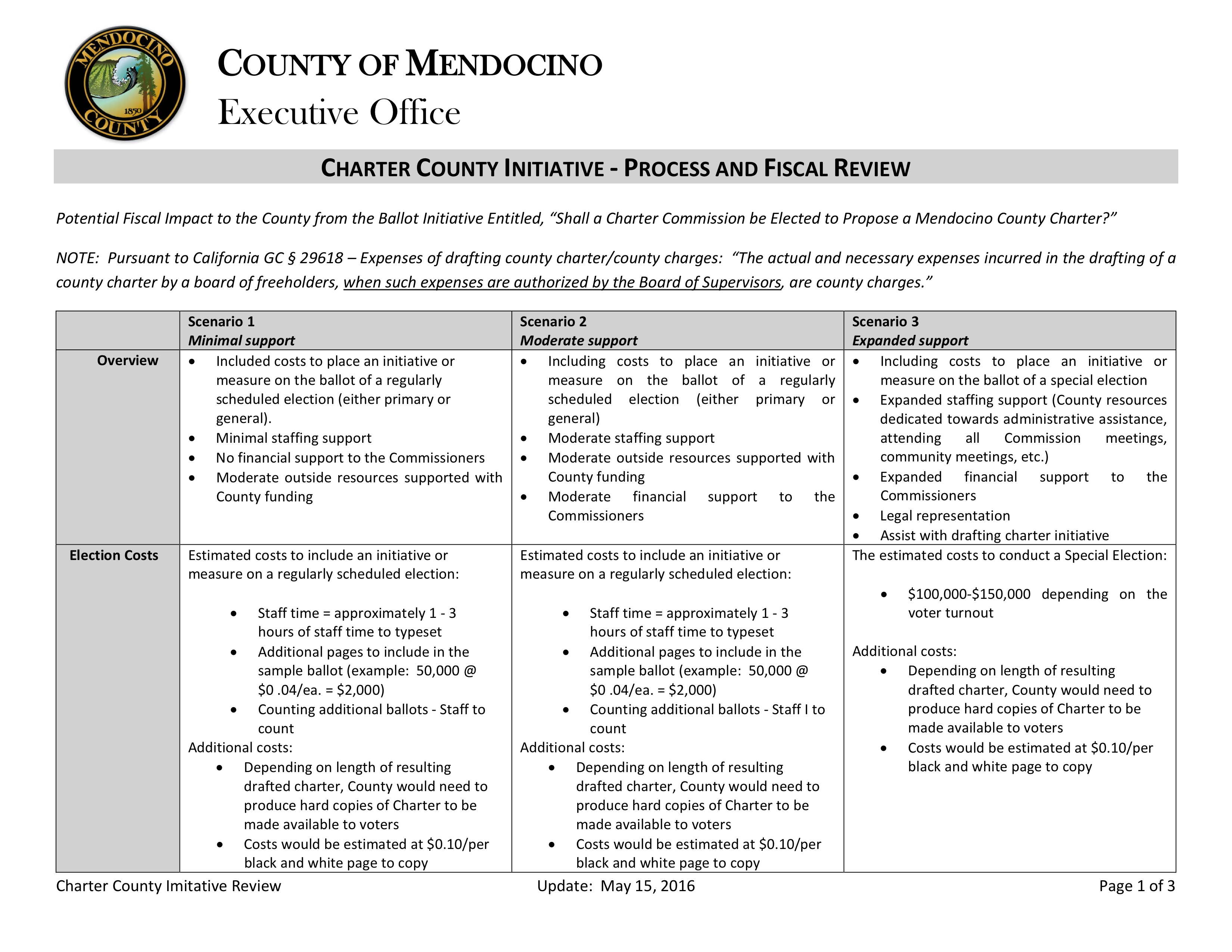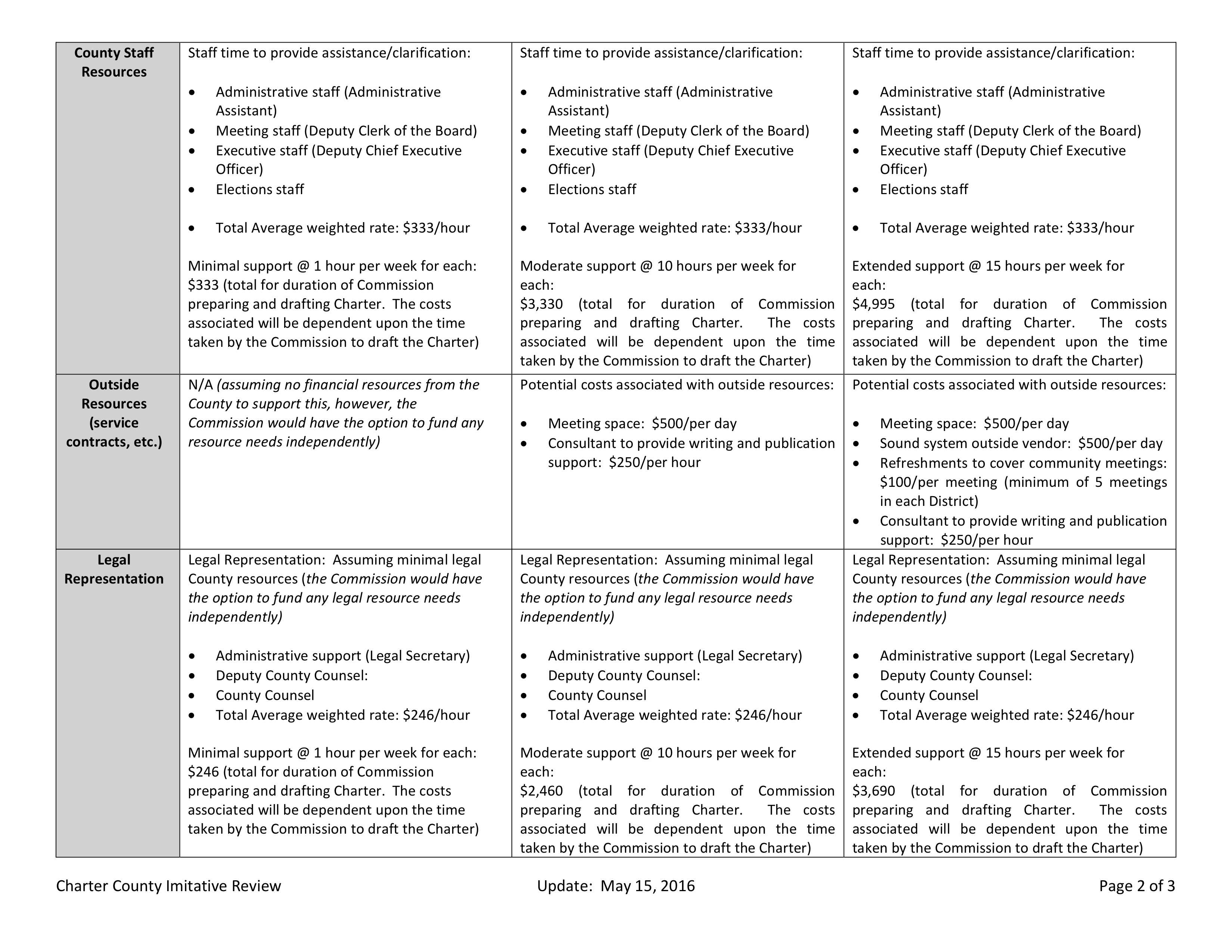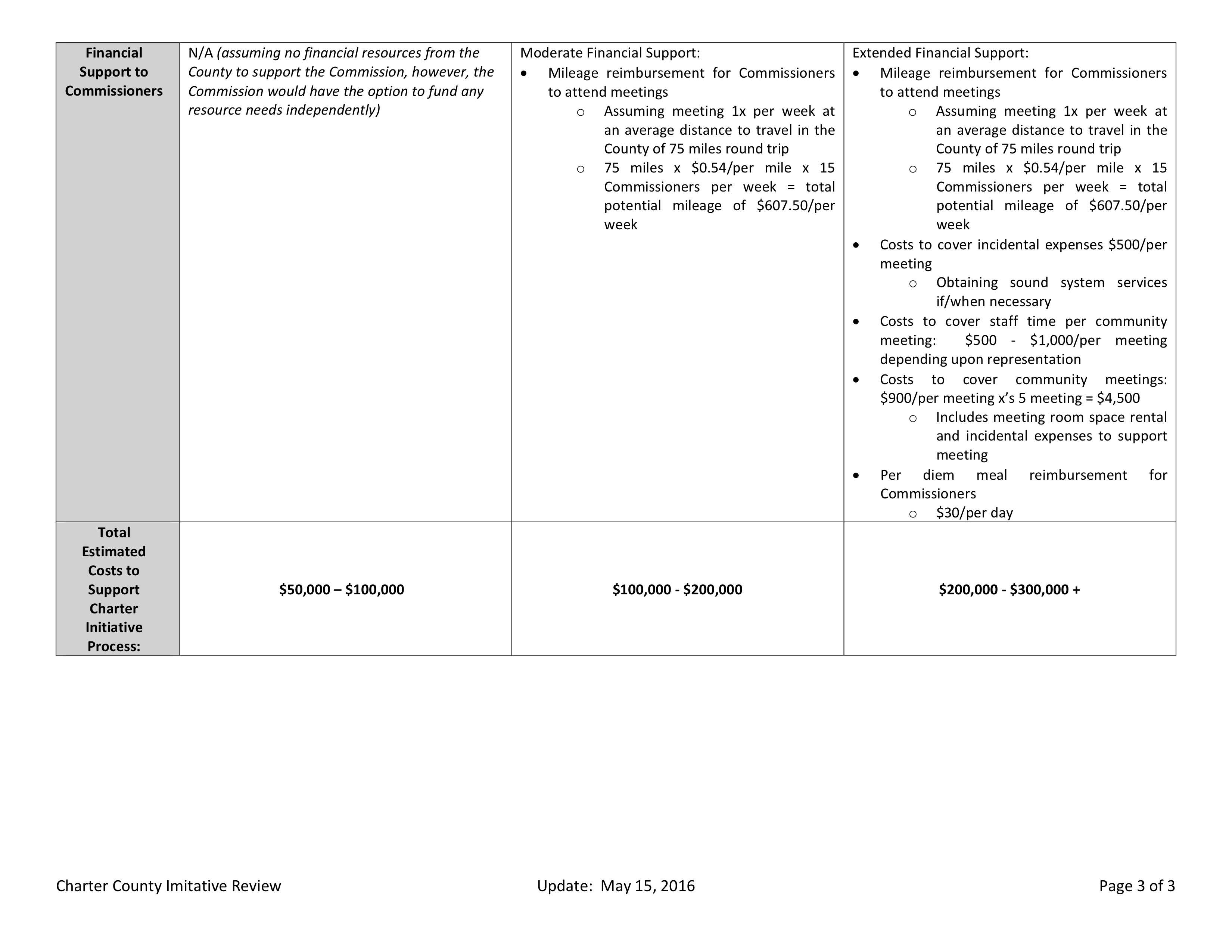By Zoe Yudice, This email address is being protected from spambots. You need JavaScript enabled to view it., @MendocinoBeacon on Twitter
As election time is nearing, the Charter Project of Mendocino has encountered some opposition to the charter initiative, particularly from The Employers Council of Mendocino County, which has raised concerns about costs and the potential outcomes of the charter form of local government.
In February, the Charter Project gained enough signatures to place Measure W on the June ballots, which asks voters: shall a charter commission be elected to propose a Mendocino County Charter?
From the start, the Charter Project have been centering their campaign on what can be written into the charter including stopping ‘illegal foreclosures,’ strengthening of local environmental ordinances and, one of their main focuses, creating a county bank.
This has led to a lot of discussion about the feasibility and costs of these issues. It has even prompted the Board of Supervisors to approve an informal cost analysis of the impact of a charter county initiative.
“We had to change our messaging a little bit because we realized that we weren’t in a position to campaign for any of these issues,” explained Doug McKenty, member of the Charter Project of Mendocino County, “We don’t have a business plan, and we don’t have a feasibility study. We can’t campaign on that, and it is premature anyway because we don’t even know who the charter commissioners will be.”
Measure W is not about what is going into the charter, but about giving the charter commission the opportunity to write a charter, at which point commissioners will be looking at what the people want to see included and the cost and feasibility of these issues, explained McKenty.
“We should just be talking about the process of the charter and the pros and cons of home rule and that is it because that is all that Measure W is about. All the rest of the conversation is hypothetical,” said Doug.
With the passage of Measure W, Mendocino County would go from a general law county to a charter county, which would allow Mendocino County to write and adopt its own charter under the California Constitution, defining the power and functions of elected officials, as well as the organization and procedure of local government.
Once the charter is approved by the voters and ratified by the Secretary of State then whatever is in the charter becomes equivalent to state law, as long as it doesn’t conflict with California law. This differs from a general-law county which is considered a sub-division of the state – and any amendments to the charter will have to be approved by the voters.
“We can break away from the one-size-fits-all format and we can write something that works for our community. It is more specific for the needs of the community here instead of using a blue print that the state gives you, which is the general law county, and because Mendocino County will be legally its own individual we can make more of our own choices that will stand up in court or other negotiations with the state or with corporations because corporations are also charters,” said McKenty.
If Measure W passes, the charter commission will then begin the task of writing the charter, and once drafted it will be brought before the voters for approval.
“This is about giving us a chance. It is not the final word. You will get a chance to vote later, and that will be the real debate. Right now there is nothing to be afraid of because there is nothing there. It is just an empty box,” said McKenty.
Another issue raised by The Employers Council of Mendocino Council is the cost of associated with forming and managing a charter commission.
According to McKenty and Wyner, all research and time spent on drafting a charter will be conducted by the charter commission hopefully with some help from county counsel.
“The concerns about expense are really off the mark in the sense that expenses aren’t necessarily there. All the commissioners are volunteers, they already have the rooms for us to meet and they already have the county counsel, who is being paid anyway,” said Keith Wyner, member of the Charter Project.
Once the commission has drafted the charter, the commission also plans to avoid the $100,000 that could incur from holding a special election for voter approval by aiming to get the charter on the ballot during a normal election.
“We want to protect the county. We don’t want to have extra expenses for the county,” said Wyner.
Mendocino Beacon article about Measure W


